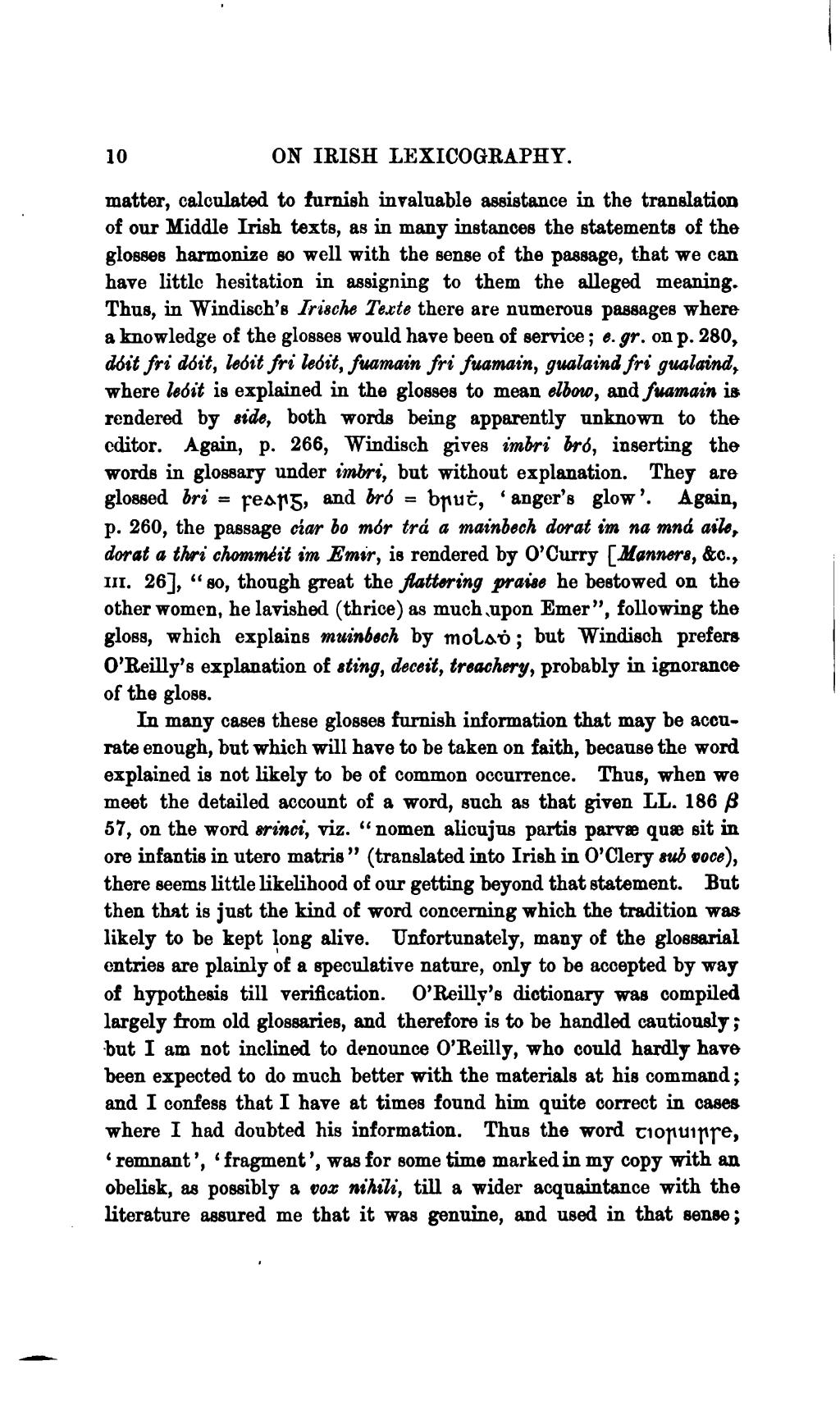matter, calculated to furnish invaluable assistance in the translation of our Middle Irish texts, as in many instances the statements of the glosses harmonize so well with the sense of the passage, that we can have little hesitation in assigning to them the alleged meaning. Thus, in Windisch’s Irische Texte there are numerous passages where a knowledge of the glosses would have been of service; e. gr. on p. 280, dóit fri dóit, leóit fri leóit, fuamain fri fuamain, gualaind fri gualaind, where leóit is explained in the glosses to mean elbow, and fuamain rendered by side, both words being apparently unknown to the editor. Again, p. 266, Windisch gives imbri bró, inserting the words in glossary under imbri, but without explanation. They are glossed bri = fearg, and bró = bruṫ, ‘anger’s glow’. Again, p. 260, the passage cíar bo mór trá a mainbech dorat im na mná aile, dorat a thri chomméit im Emir, is rendered by O’Curry [Manners, &c., iii. 26], “so, though great the flattering praise he bestowed on the other women, he lavished (thrice) as much upon Emer”, following the gloss, which explains muinbech by molaḋ; but Windisch prefers O’Reilly’s explanation of sting, deceit, treachery, probably in ignorance of the gloss.
In many cases these glosses furnish information that may be accurate enough, but which will have to be taken on faith, because the word explained is not likely to be of common occurrence. Thus, when we meet the detailed account of a word, such as that given LL. 186 β 57, on the word srinci, viz. “nomen alicujus partis parvæ quæ sit in ore infantis in utero matris” (translated into Irish in O’Clery sub voce), there seems little likelihood of our getting beyond that statement. But then that is just the kind of word concerning which the tradition was likely to be kept long alive. Unfortunately, many of the glossarial entries are plainly of a speculative nature, only to be accepted by way of hypothesis till verification. O’Reilly’s dictionary was compiled largely from old glossaries, and therefore is to be handled cautiously; but I am not inclined to denounce O’Reilly, who could hardly have been expected to do much better with the materials at his command; and I confess that I have at times found him quite correct in cases where I had doubted his information. Thus the word tioruirse ‘remnant’, ‘fragment’, was for some time marked in my copy with an obelisk, as possibly a vox nihili, till a wider acquaintance with the literature assured me that it was genuine, and used in that sense;
